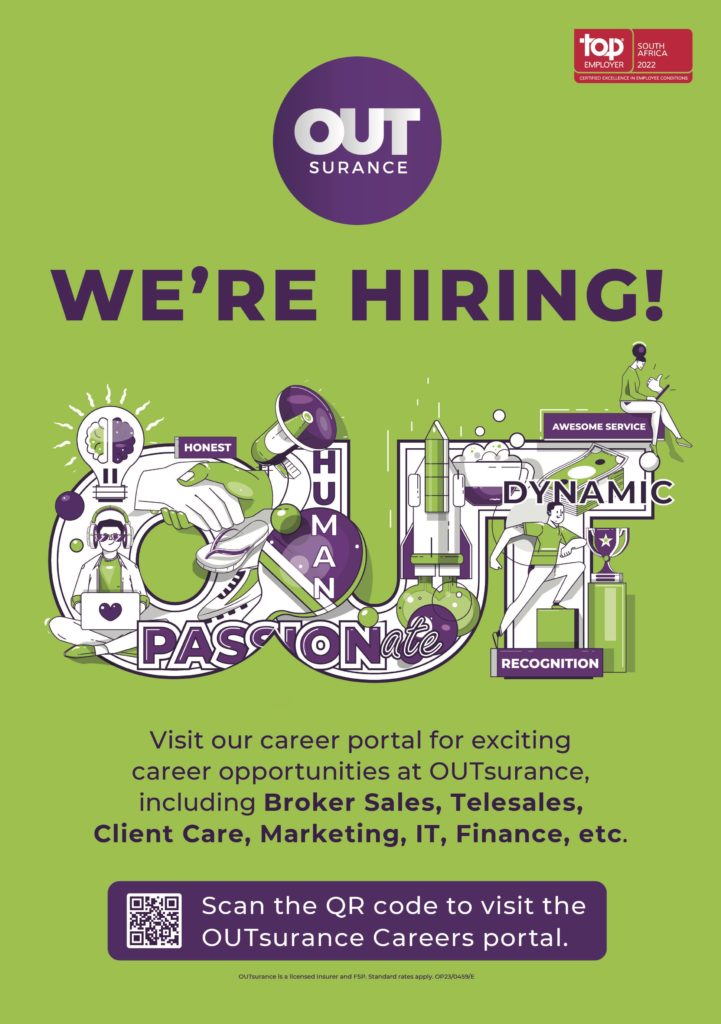By Vanessa Rogers on behalf of Executive Placements.
Studies reveal that the insurance market is not only growing, it’s also shifting in a series of interesting ways. Here’s what you need to know as a job seeker, brokerage owner or insurer.

A glance at global insurance market projections, courtesy of a Sigma study published by Swiss Re, reveals that an increase of 6.1 percent can be expected by the end of 2022, with total premiums likely to exceed the US$ 7 trillion mark. Further, non-life insurance could well increase by 7.1 percent to reach US$ 4.1 trillion, while life premiums could progress by 4.8 percent – reaching a solid US$ 3.1 trillion.
While Swiss Re expects this trend to continue well into next year, it is important to remember that this boom is taking place in an environment steeped with challenges – a slowing global economy, exorbitant inflation rates, and the alarming incidence of climate-related disasters. “If you’re looking to make a career move and take on a new insurance job in the current market,” says Charles Edelstein, co-founder of jobs board Executive Placements, “it could stand in your stead to note the direction in which this fast-moving industry is veering, so that you can tweak your CV in the direction of the skills you have that employers will most need in the time ahead.”
So what transformational trends for insurance in 2023 should you take note of as a job seeker, brokerage owner or insurer? Word on the street is that as insurtech startups make it increasingly easy for insurance customers to seek and apply for the products they need in cyberspace, so the insurance providers out there will need to predict what’s coming and shift their focus to embrace where this transformation is leading.
Understanding AI’s contribution “As the Fourth Industrial Revolution knocks with more urgency each day upon our doors, so industries across the board must embrace the best in digital acceleration – and harness it to stay competitive and current,” says Edelstein.
Artificial intelligence is your friend in the claims-settlement arena, as just one example, while machine learning can automate the processing of claims. “A question worth asking,” advises Edelstein, “is whether you have an expert on your team who can provide training and tech-related advice on process administration and risk assessment, as these become increasingly automated.”
Making remote work systems-based Paper trails have become a thing of the ark, and the trend towards accommodating a hybrid system of work-from-home and in-office staff members is here to stay.

WE’RE HIRING!
Visit our career portal for exciting
career opportunities at OUTsurance,
including Broker Sales, Telesales,
Client Care, Marketing, IT, Finance, etc.
“What this means,” suggests Edelstein, “is that your full compliment of staff need to be able to log their work – and see where everyone else is at – on a system such as Asana, or Slack.
If you’re not able to support your employees to complete their tasks remotely, this is certainly an area in which you are required to develop your business. Once again, if you’re an insurance job seeker who can seamlessly get a team uploaded and working efficiently on such a system, be sure to mention this in your next interview.”
Servicing a switched-on customer base In the mobility market, as just one example, insurers will have their work cut out for them in the actuarial and product development arenas, not to mention their customer service offerings. The reason? “Shifting customer priorities,” predicts Edelstein.
While the frequency of car-insurance claims may decrease, the extent of the cost of these when a claim is made will likely be much more in the future – as component replacements begin to include sensors in self-drive cars and batteries in electric vehicles. “The characteristics of a potential new hire that may grab an employer’s attention: an innovative approach, ability to analyse data and come to fresh conclusions, contacts with whom to collaborate – say in vehicle manufacturing and sales.” Whereas the insurance sector used to have the reputation of being highly conservative, today the scales have tipped in the opposite direction. Increasingly, companies will be hiring based on personality (ability to retain your clients in a shifting landscape); agility (ability to adapt as digital-first and behaviour-based models push other product types aside); and the tech insight to rapidly grasp what a product developer has implemented – and why!
Your market share On the continent, the opportunity in this niche extends to untapped markets. In fact, the Research and Markets firm projects that Africa’s insurance market will see a compounded annual growth rate of seven percent to 2026 – increasing its value well beyond the US$70-billion last tallied at the conclusion of 2020. “Grabbing a piece of this burgeoning pie will certainly depend on the dynamism of the company you choose to join, and/or the desirable skills of the individuals on your team,” concludes Edelstein.
Sources: https://www.atlas-mag.net/en/category/regions-geographiques/monde/global-insurance-market-projections-for-2022-and-2023 https://www.easysend.io/blog/top-16-digital-transformation-trends-in-insurance-in-2022 https://www.mckinsey.com/industries/financial-services/our-insights/insurance-blog/are-insurers-ready-for-the-future-of-mobility https://mg.co.za/africa/2022-06-13-activity-in-africas-insurance-market-is-on-the-increase/

